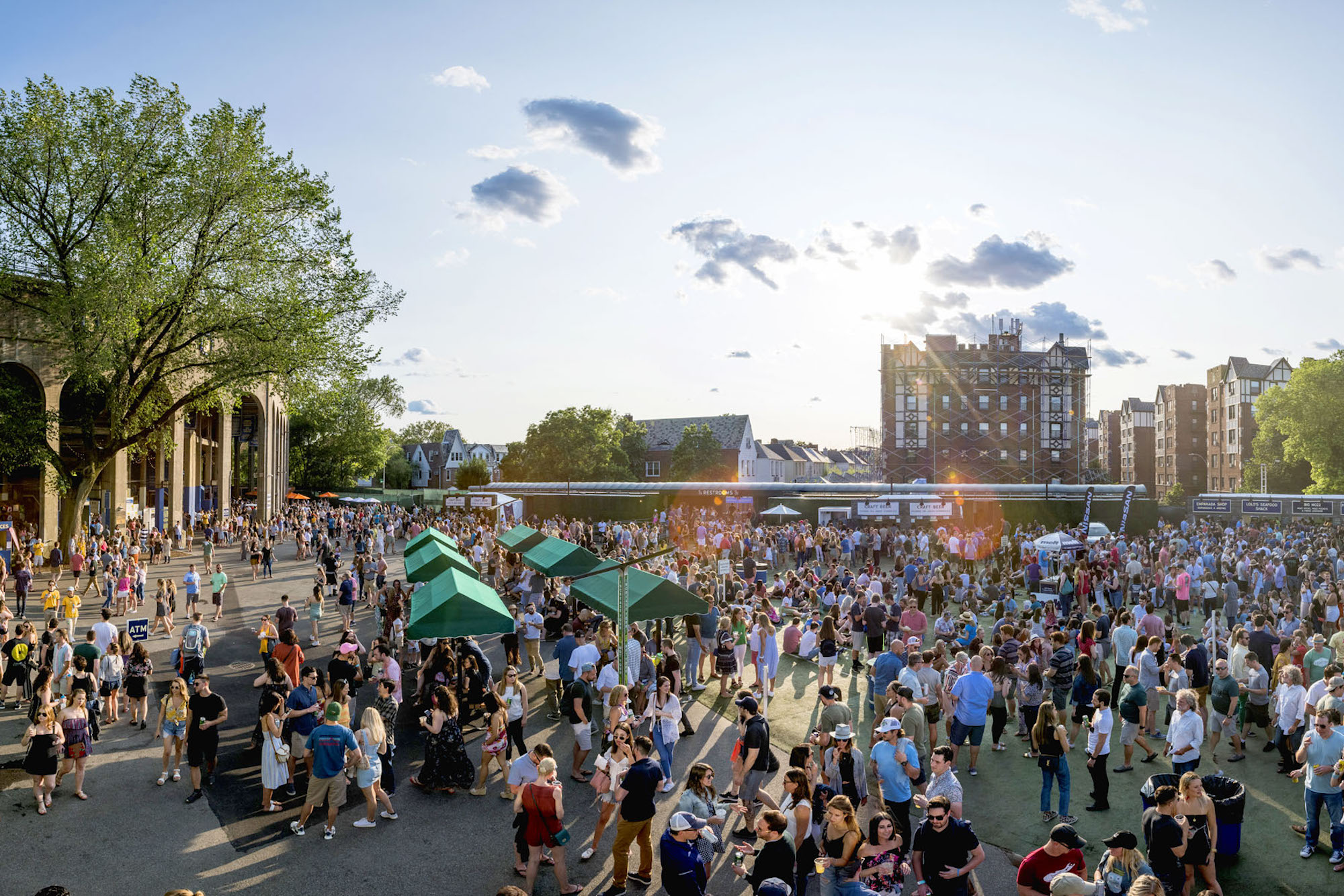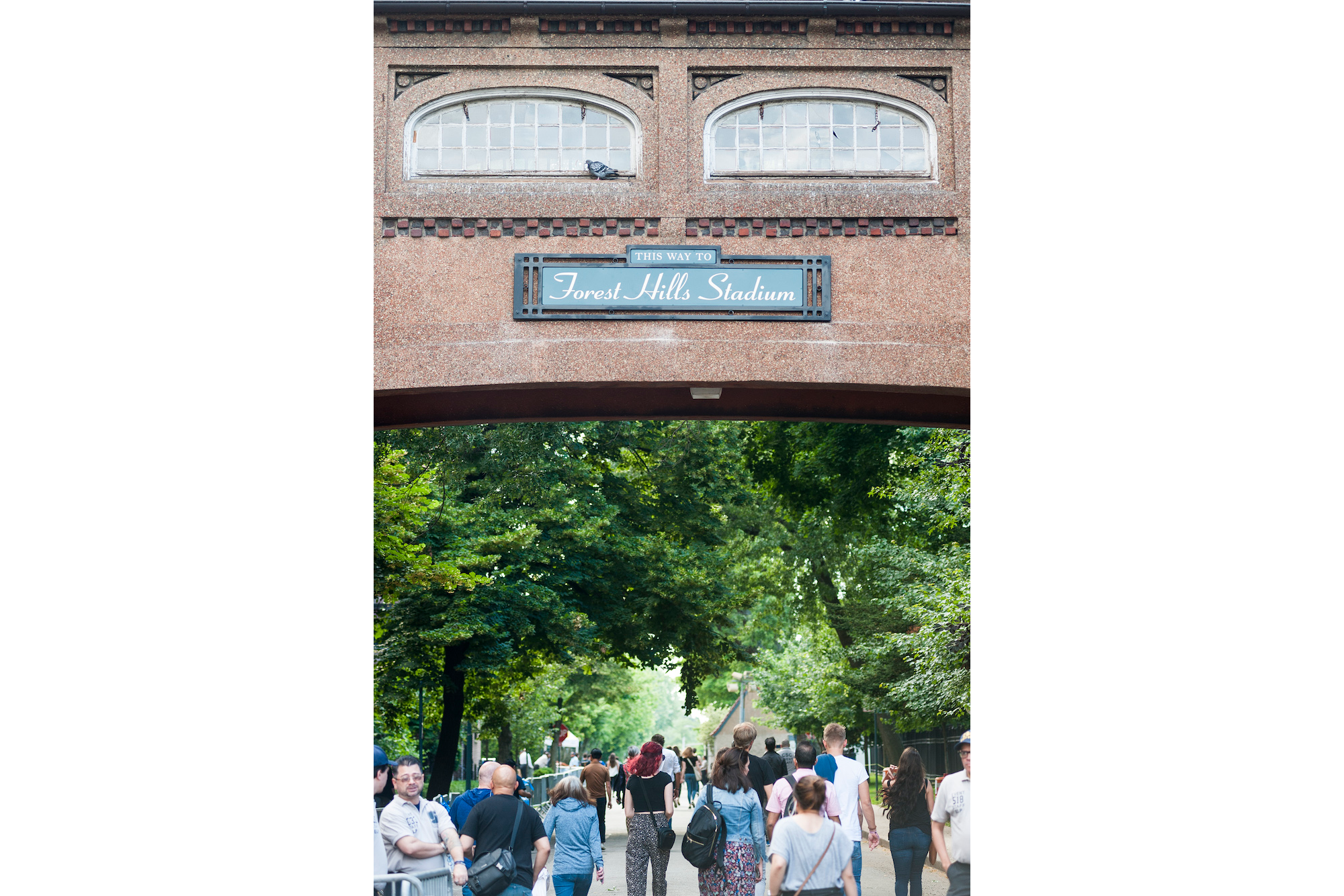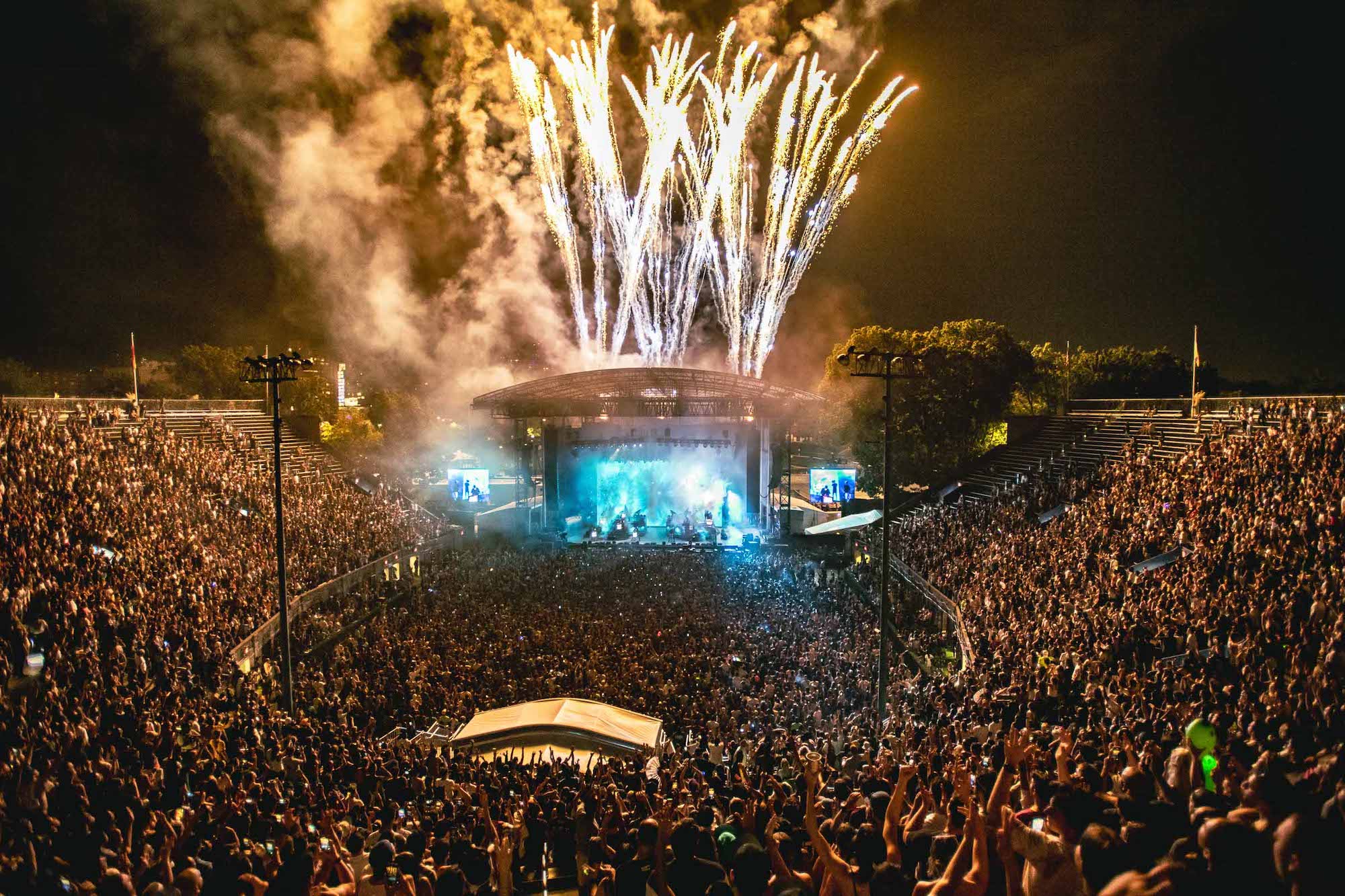
A Blueprint for a Green Future at Forest Hills Stadium
Learn about how our national partner is aiming to make shows this summer as environmentally friendly as possible.
Summer in New York City for music lovers means taking the F Train on the orange line all the way out to Forest Hills-71 Ave. Getting off the train, one is greeted by the leafy neighborhood of Forest Hills in Queens and the sound of nearby live music. New York’s widest spanning borough is home to Forest Hills Stadium, one of the city’s largest music venues and one of Ilegal Mezcal’s longest standing national partners. The horseshoe-shaped stadium is a behemoth of live music, bringing a one-of-a-kind vibe along with our signature Joven and Reposado mezcal cocktails to hundreds of thousands of concert goers every year. Forest Hills Stadium and Ilegal have a lot in common beyond good taste in premium agave — more importantly, we both value and commit to a sustainable future.
“The team at Ilegal really ‘gets it’,” says Forest Hills’ General Manager Jason Brandt. “They know how to be fun and edgy, while also being responsible. They jumped at the opportunity to partner with Small Axe, a hot sauce company that supports sustainable community gardens throughout the country by supplying them with the seeds to bring in a pepper harvest. Together, the three of us developed a couple of spicy cocktails to be sold only at the stadium, and both partners pursued a relationship beyond us. As for us, we now grow peppers on-site and other garnishes for our cocktail program, which is about as sustainable as you can get.”
Forest Hills’ love for the Earth goes beyond growing peppers in the garden, pouring our sustainably-crafted mezcal, or their partnerships with Planet Reimagined’s environmental research initiatives and green-conscious music industry organization REVERB, who helps track their carbon footprint. The summer 2023 season at Forest Hills Stadium has an ambitious goal: to be carbon neutral, and move toward climate positivity. Beyond 2023, they are committed to making shows as environmentally friendly as possible and offsetting their impact and waste.
“We’ve always had an environmental focus here, but we really started to make it a priority after we hosted a Jack Johnson show [and] his team advanced an ‘Eco Rider’ to us,” recalls Brandt. “We found that while we were doing many of the things they asked for, there was more that could be done, and they had just given us a blueprint on how to take the extra step. We decided then that any improvements we would make for that show, we would keep on as policy going forward. We’ve been trying to add and improve every season since.”
A key part of these improvements has been the venue’s conscious effort to offset carbon emissions. Forest Hills supports a conservation project at Medford Spring Grassland Conservation in Colorado. The initiative aims to significantly neutralize any carbon emission generated during the summer 2023 season. If all goes according to plan, REVERB’s calculations — based on the venue’s square footage, predicted fan and employee travel to and from shows, electric and gasoline usage, waste created, and other considerations — predict Forest Hills Stadium will offset a total of 2,119 tonnes of CO2e while protecting 6,900 acres of land from being developed.
Plans and predictions aside, the Forest Hills team maintains that the big picture is possible through small change — and they’ve already gotten started. Forest Hills Stadium is introducing twenty-eight upcycled shipping containers throughout backstage and front-of-house, LED and energy-efficient fluorescent lighting onstage and in public spaces, free drinking water refill stations, solar-powered phone charging stations, shore power to power artist’s production needs while eliminating air pollution, and a comprehensive recycling program to divert recyclable materials from landfills.
“We try to show that being eco-conscious is as much about small steps that we can all do to help, instead of grand gestures or changes to the concert experience,” says Brandt of the venue’s efforts. “We are lucky to be incredibly well served by the MTA and the LIRR, so we work to promote public transit in pre-event communications. Once onsite, we try to make it as easy as possible to participate. We make sure our vendors are using the right products and that we are buying post-consumer recycled products. We utilize a single stream recycling program to simplify the process, and we’ve set up a system in which we can recover all the cans and other recyclables that are generated onsite and get them back into the recycling stream. Fans will probably notice the free water stations (bring your own reusable bottle or pick one up here), the solar phone chargers, and the recycling bins throughout the venue, and can participate in various contests and other fundraising initiatives. That is all straightforward stuff that should just be the norm.”
An approach to environmental sustainability in live music is a pre-eminent concern as our climate gets hotter each year. Forest Hills Stadium’s plan for climate neutrality is centered in plans to eliminate waste while creating efficiency and minimizing carbon output. Running a green-conscious live music space entails a lot of care, seeing where carbon sources are and seeking to lessen and, eventually, eradicate them.
“Each season we further refine the model and last season we actually were able to offset more than we created, thus becoming ‘Climate Positive’,” says Brandt. “[To become climate positive, venues need to] buy post-consumer recycled products. Recycling is a coin with 2 sides. Not only do we need to get as much material as possible into the recycling stream and out of landfills, we also need to help create the demand for recycled things by buying recycled products. If a healthy marketplace exists, recycling can be truly effective. It might be a little pricier, but it’s worth it.”
The Forest Hills Stadium team has a big season ahead, with summer headliners including giants of their respective genres like The Strokes, LCD Soundsystem, Maggie Rogers, and Willie Nelson. Still, Brandt maintains he's most looking forward to working with the people who make the show possible behind-the-scenes: “We get a chance to build a community of great seasonal employees, and to work with the amazing folks out on the road making the tours happen,” he says.











